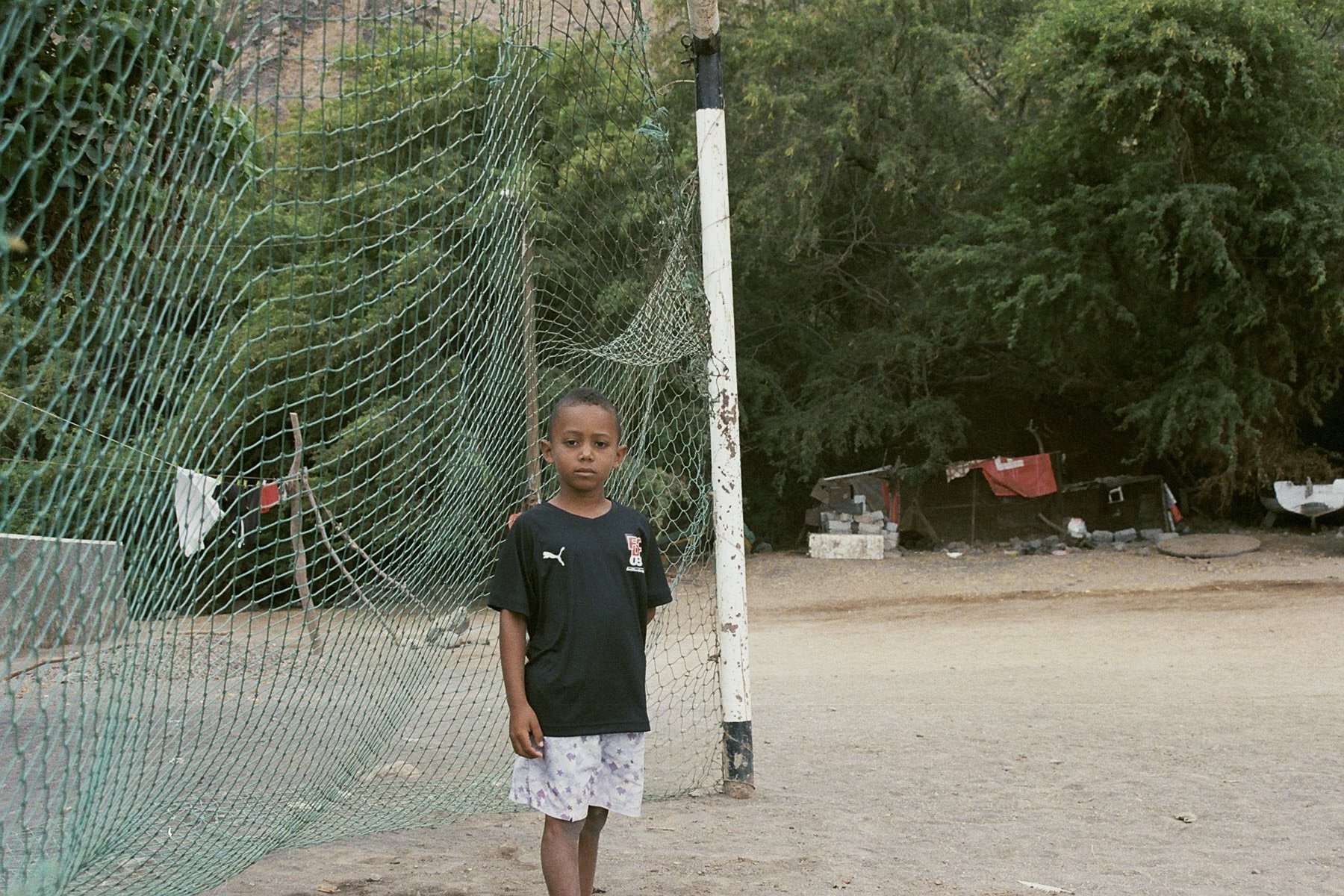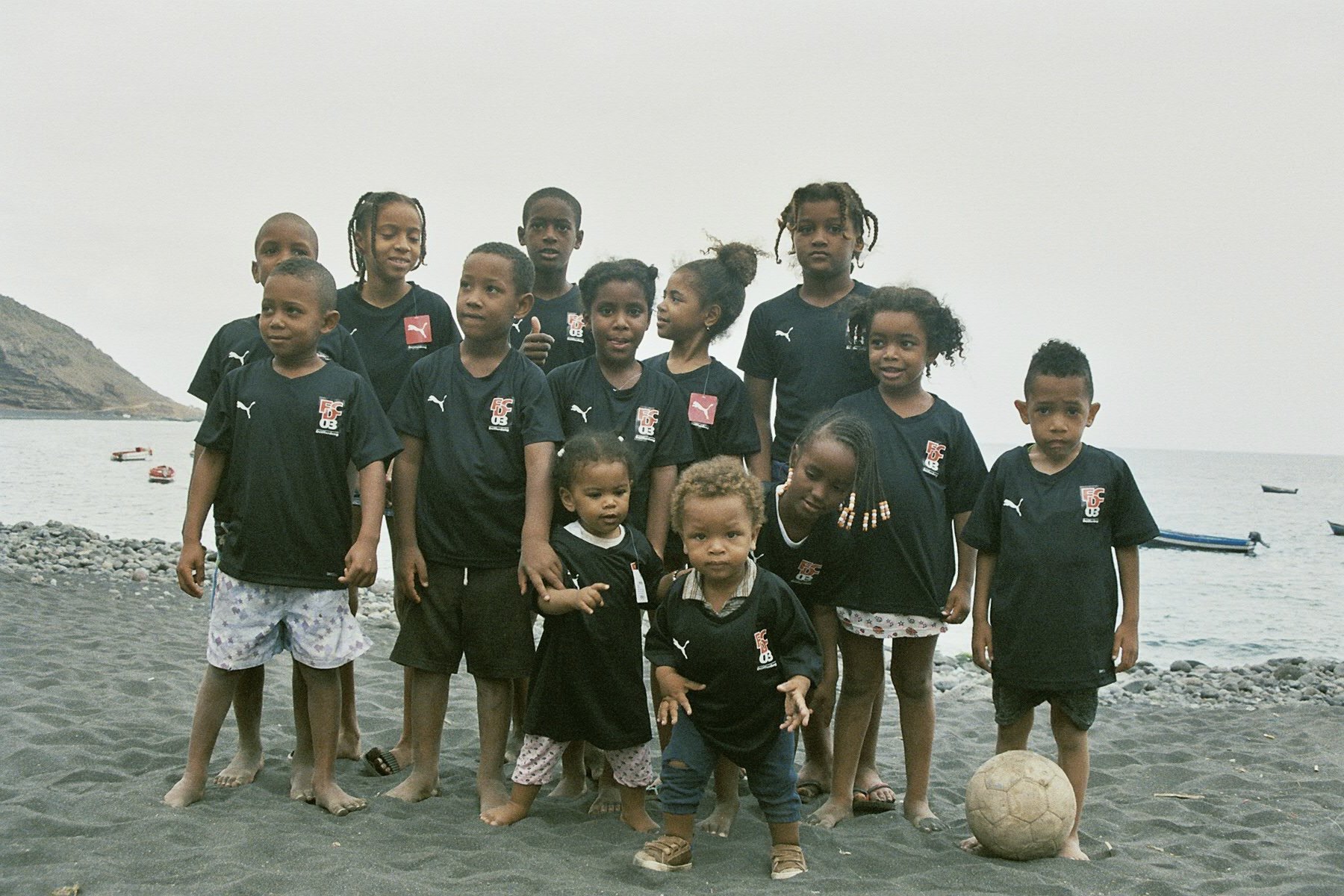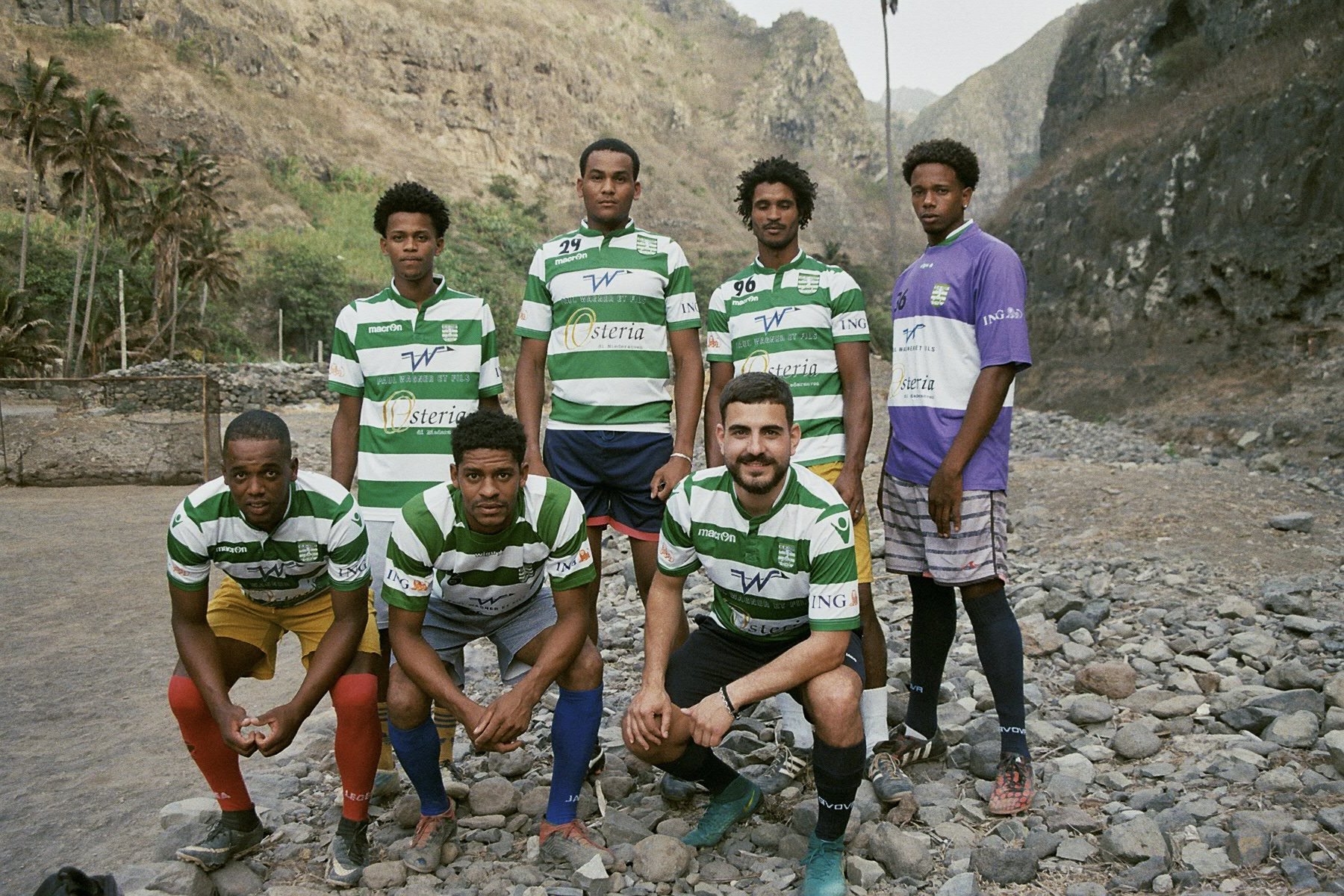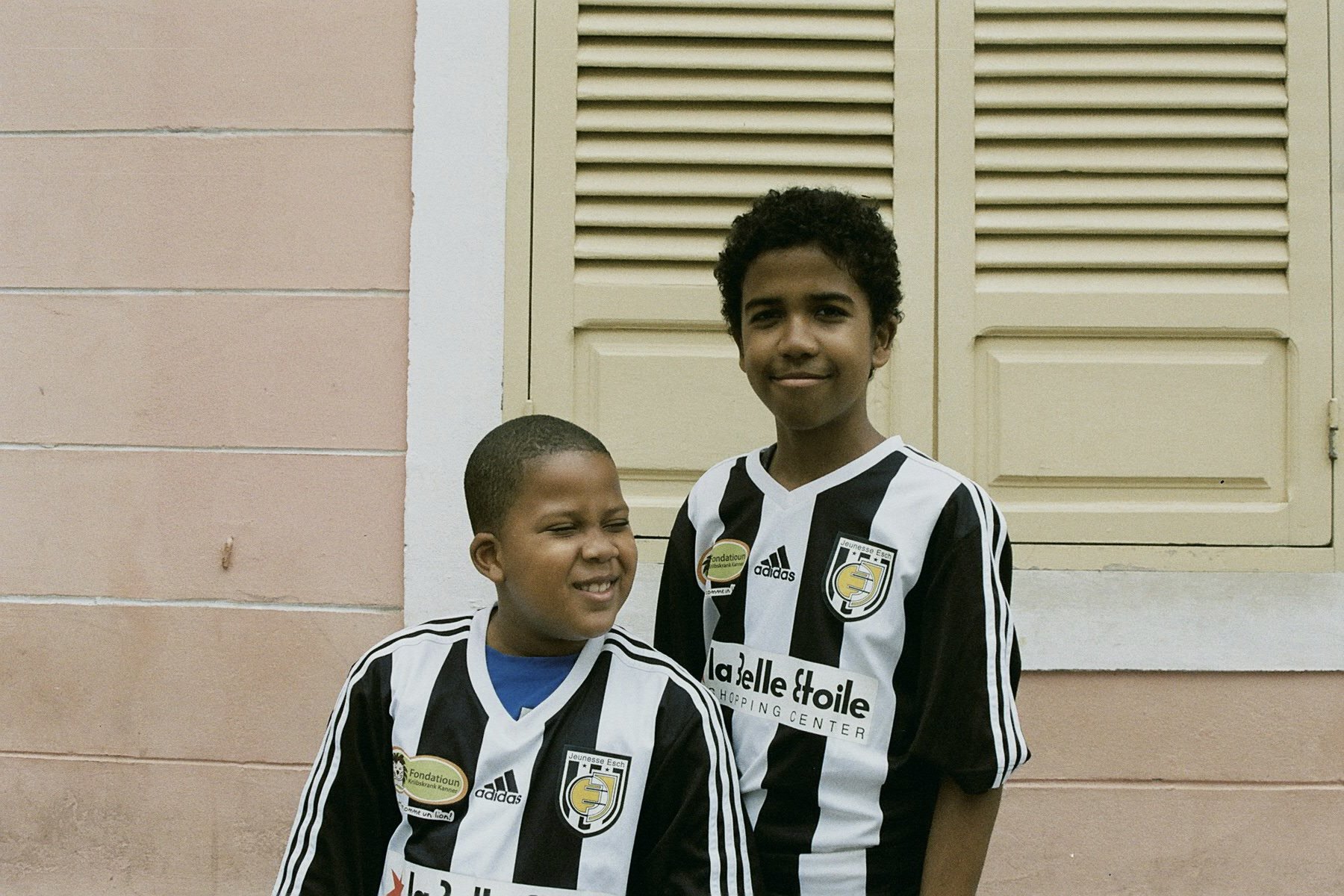Objectivo Pra 238: Football in the Cape Verdean Diaspora
The Cape Verdean diaspora plays an important role in Luxembourgish society. Luxembourg, the country in which I was born and raised, is a land of immigration and diversity. Half the population does not have Luxembourgish nationality and the mixture of languages and cultures of all these communities enriches life, giving it a cosmopolitan sense of belonging. You can easily find Italian, Portuguese, French, Serb and Cape Verdean communities, making up a total population of 600,000. According to the latest figures there are some 10,000 people of Cape Verdean origin in Luxembourg, 3,000 of which still retain Cape Verdean nationality.
Luxembourg welcomed the first Portuguese immigrants in the early 1960s, knowing that many had to leave their country by resorting to clandestine methods. At that time, Portugal was still under the dictatorial regime of Salazar, which strongly forbade emigration. Following the Portuguese revolution in 1974, Cape Verde gained its long-awaited independence. As Luxembourg was in need of workers and considered Cape Verdeans to be Portuguese citizens, the first Cape Verdeans arrived in search of a better life via Portugal and eventually via the Netherlands.
When the Portuguese arrived in the country, they were not allowed to play football in the Luxembourg leagues. They therefore created their own clubs and launched the first all-Portuguese league in 1978, the Federation of Portuguese Associations in Luxembourg (FAPL). This championship welcomed Cape Verdean clubs such as Luso-Caboverdeana and FC Estrela Amadora do Norte. As the demographics of the country changed, people of all origins became welcome in the Luxembourgish clubs and the all-Portuguese league was ended. In honouring the tradition of the old league though, Cape Verdeans have been organising a traditional Inter-Illhas tournament for the past 25 years. The tournament brings together players from the different islands of the Cape Verdean archipelago living in Luxembourg to compete against each other and create a memorable experience for Cape Verde’s diaspora.
The diaspora community in Luxembourg has a very strong link with Cape Verde, be it through music, football or many other things. Words such as ‘sodade’ and ‘morabeza’ express the mood and connection of Cape Verdeans with their native country.
Sodade in Capverdean Creole and Saudade in Portuguese signifies a complex emotion of melancholy, nostalgia and hope. The word is so powerful and complex that it cannot be translated into other languages. Morabeza, on the other hand, is a word used to express hospitality, friendliness, and relaxed behaviour. Wherever they may be in the world, sodade and morabeza are always present in the minds of Cape Verdeans.
The Cape Verdean diaspora has a certain relevance and importance in Luxembourg and the proof can be found in our national football team. Players like Gerson Rodrigues (FC Troyes), Kiki Martins (Young Boys Bern) and Yvandro Borges (Mönchengladbach) have Cape Verdean roots, and we wanted to thank their community and contribution to the development of football in Luxembourg.
So, aided by two friends - Stéphane Alves and Kevin Santos - also football fanatics, the three of us set out to honour this heritage. We decided to collect as many football shirts as possible to offer them to the population of Cape Verde - more specifically, the young people of Santo Antao & Sao Vicente in the Cape Verdean archipelago.
We contacted clubs in Luxembourg for donations to the initiative. By the time we were ready to depart for Cape Verde, we had collected 60kg of shirts, shorts, shoes, gloves and other things, thanks to various generous donations. We stayed for almost three weeks at Kevin’s grandmother’s place, in Mao pra Gras - near Santo Antao.
As everywhere, football in Cape Verde is hugely popular. Decades of colonisation has meant that its football is heavily influenced by the giant Portuguese clubs. As Luxembourg citizens who are fans of Benfica and Porto, Stephane, Kevin and myself all understand that relationship. We watch games and live it as if we were there every weekend. It connects us to the roots of our parents who also left for Luxembourg in search of a better life. Cape Verdeans live it in the same way, they fight over clubs as we do in Portugal because of the rivalries. There, Benfica and Porto are the most followed, even more than the local clubs.
As one of the smallest African countries, they have performed near-miracles to qualify twice for the African Cup of Nations: the first time in 2013 and they’ll be making their second appearance at the next tournament in 2022. Ronny Souto was the first Cape Verdean to play in the African Cup of Nations whilst playing in Luxembourg at the time for F91 Dudelange. The national team is known as ‘Os Tubaroes Azuis’ - the Blue Sharks. The national stadium was built, as with many other national stadiums in smaller countries, by China as part of their Belt and Road Initiative - in the capital Praia on the island of Santiago. Patrick Vieira, Nani, Renato Sanches and even Henrik Larsson also have Cape Verdean roots and have celebrated that heritage throughout their careers.
So where does our inspiration come from? +238 is the telephone code of Cape Verde: so when Cape Verdeans call friends or relatives from abroad, they are the first numbers they dial. Objectivo football pra +238 means Football goal for +238.
We chose to do this action following our heart. Spreading the joy of football; linking the heritage of two countries together through the beautiful game; seeing a little smile on these children's faces - even if it's only for a few seconds - while wearing Luxembourgish club shirts: that is Objectivo pra +238.
We would love to take this project further, to invest in more professional football facilities on the West African islands. We played football with various communities on a daily basis and it deserves more attention.
So, now you can see the link between the three countries: Cape Verde, Portugal and Luxembourg. These countries are linked by football, religion, history and immigration. But above all: by respect and solidarity.








